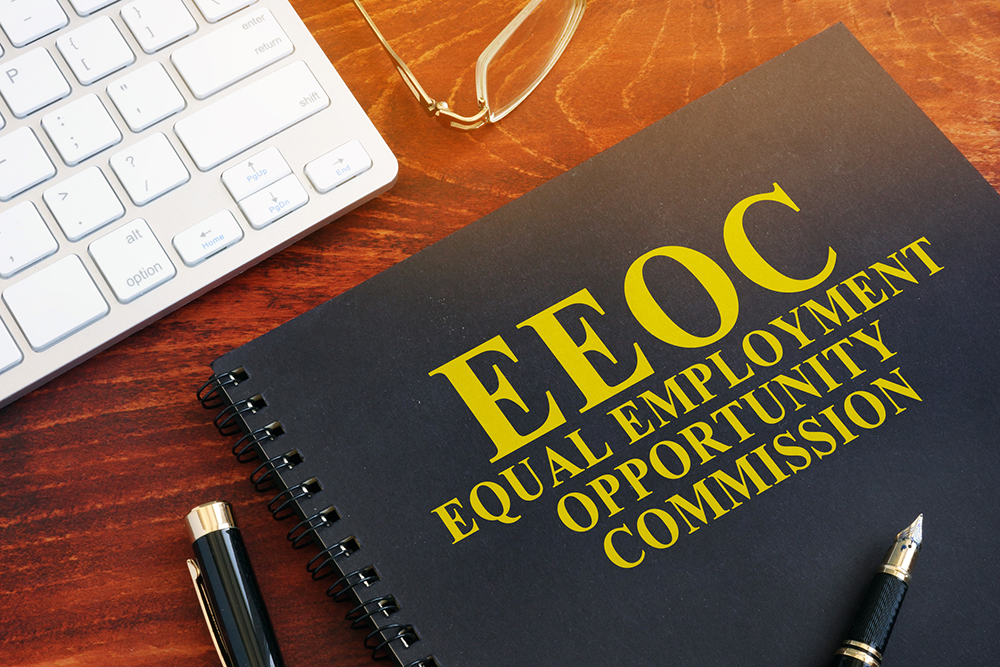President Joe Biden’s nomination of a diversity and inclusion expert for a seat on the Equal Employment Opportunity Commission (EEOC) puts the panel closer to a 3-2 Democratic majority. Kalpana Kotagal’s nomination was announced April 4 for the seat that will come open when Republican Janet Dhillon’s term ends on July 1.
Kotagal is a partner at Cohen Milstein in Washington, D.C., and a member of the law firm’s civil rights and employment practice group. She may be best known as a co-author of the “Inclusion Rider,” a legal template aimed at increasing diversity in the entertainment industry.
Leslie Silverman, an attorney with FortneyScott in Washington, D.C., and a former member and vice chair of the EEOC, says Kotagal’s nomination likely will be successful but will face scrutiny for two reasons: She’s nominated “to that key fifth spot,” which will shift the commission to a Democratic majority, and some cases in her background may be political and controversial.
Nominee’s Priorities
Richard L. Rainey, an attorney with Womble Bond Dickinson (US) LLP in Charlotte, North Carolina, says Kotagal’s background “suggests that she will be very interested in reviving pay equity issues that the EEOC had previously started working on but which had stalled out during the Trump administration.”
“Once a Democratic majority is in place, I foresee a renewed emphasis on pay equity and LGBTQ issues,” Rainey says. “However, it will take some time for these sorts of policy directions to trickle down and actually impact employers.”
Silverman says if confirmed, Kotagal will help EEOC Chair Charlotte Burrows advance issues stalled because Republicans hold the majority of the seats. Currently, the commissioners are Republicans Dhillon, Keith E. Sonderling, and Andrea R. Lucas. The Democrats are Burrows and Vice Chair Jocelyn Samuels.
“Without a Democratic majority at the Commission, Chair Burrows cannot press for the substantive regulatory actions she and the Biden administration are seeking to advance,” Silverman says. “These include reinstating employer pay data reporting, the EEOC’s comprehensive antiharassment guidance, which has been stalled since 2017, or new rules for employer wellness plans, which could potentially help employers navigate COVID-19 vaccine incentives.”
Lisa M. Koblin, an attorney with Saul Ewing Arnstein & Lehr LLP in Philadelphia, Pennsylvania, says a shift to a Democratic majority would mean the EEOC “will become further aligned with President Biden’s pro-worker agenda on a variety of fronts.”
“Further, given the current administration’s strong stance in support of equal protections for individuals in the LGBTQ community, we may expect to see the EEOC take an even stronger and more prominent stance in enforcing antiharassment and discrimination against employees based on their LGBTQ status, including transgender individuals in particular,” Koblin says.
Confirmation Process
Kotagal faces potentially contentious confirmation hearings in the Senate.
“Kotagal’s education and professional background certainly meet the qualifications for the position,” Rainey says. “However, given how highly combative the Senate Republicans have been on many of (Biden’s) nominations, it is hard to predict that she would sail through without intense scrutiny.”
Silverman says the timing of the announcement means the administration risks the possibility of extending the Republican majority while Kotagal’s nomination is pending. Although Dhillon’s term technically ends on July 1, a commissioner whose term is expiring can remain for up to 60 additional days provided a nominee for the seat has not been confirmed.
“If the president has not nominated a successor for the commissioner’s seat prior to the time the Senate adjourns for the August recess, the commissioner whose term has expired cannot remain on the commission beyond the 60 days,” Silverman says. “However, where the president submits a nominee to replace a sitting EEOC commissioner but the Senate fails to confirm that nominee prior to the August recess, then the sitting commissioner can continue to remain on the commission pending confirmation of the nominee or until the end of the Senate term (sine die), whichever occurs first.”
Tammy Binford writes and edits news alerts and newsletter articles on labor and employment law topics for BLR web and print publications.

